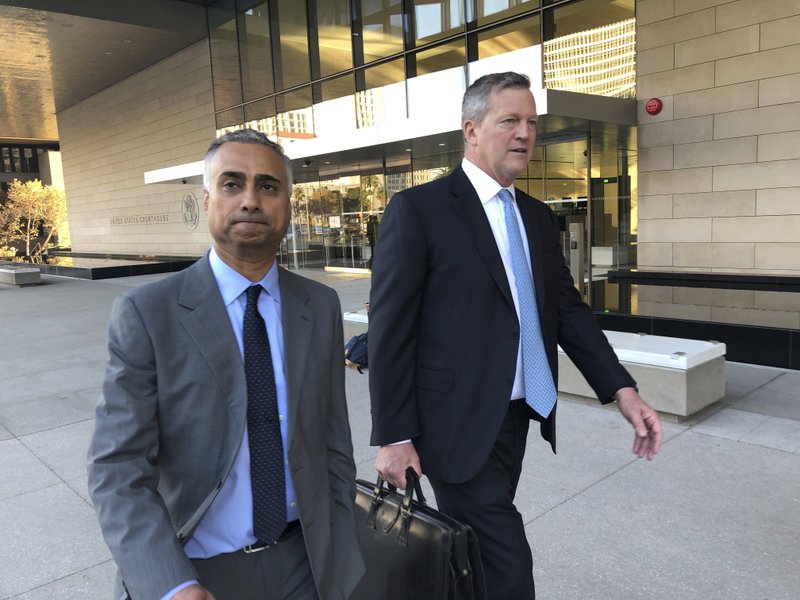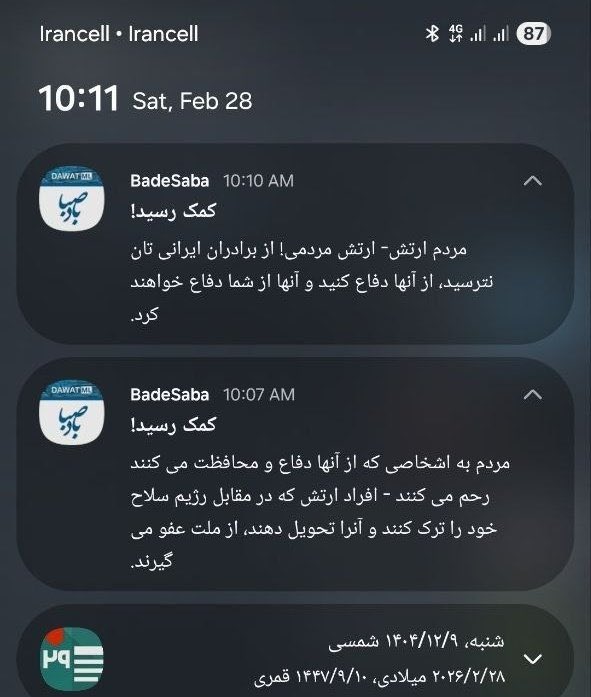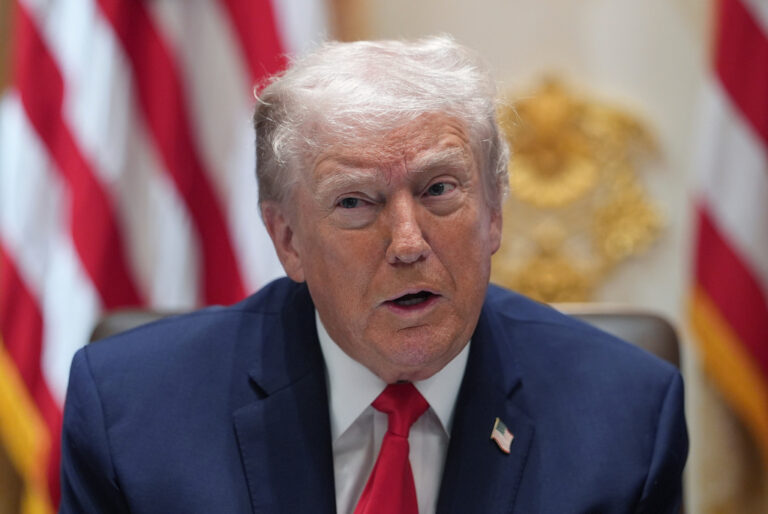As an elite political fundraiser, Imaad Zuberi had the ear of top Democrats and Republicans alike — a reach that included private meetings with then-Vice President Joe Biden and VIP access at Donald Trump’s inauguration.
He lived a lavish, jet-setting lifestyle, staying at fine hotels and hosting lawmakers and diplomats at four-star restaurants. Foreign ambassadors turned to Zuberi to get face time in Congress. A CIA officer called him the “best connected person I know,” marveling at the depth of his Rolodex.
He was a charming networker and an inveterate namedropper. His Facebook account was filled with pictures of him next to the powerful and famous: having dinner with Hillary Clinton and Robert De Niro and rubbing shoulders with Trump’s then-chief of staff Reince Priebus outside Mar-A-Lago. Zuberi raised huge amounts for Clinton in the 2016 election before becoming a top donor to the Trump Presidential Inauguration Committee.
But federal prosecutors say Zuberi’s life was built on a series of lies and the lucrative enterprise of funding American political campaigns and profiting from the resulting influence.
“Everyone wants to come to Washington to meet people,” Zuberi said in a 2015 email obtained by The Associated Press, seeking a meet-and-greet between the president of Guinea and a powerful congressman. “We get request(s) for meeting(s) from all scumbag of the world, warlords, kings, queens, presidents for life, military dictators, clan chiefs, tribal chiefs and etc.”
Prosecutors describe Zuberi as a “mercenary” political donor who gave to anyone — often using illegal straw donor cutouts — he thought could help him. Pay to play, he explained to clients, was just “how America work(s).”
Zuberi’s story underscores how loosely regulated campaign finance and foreign lobbying laws are and raises an embarrassing question: How does such a cynical fraudster find favor with so many officials at the highest levels of the U.S. government?
“The Zuberi case explicitly verifies, through evidentiary proof, pervasive, corrupt foreign interference with our elections and policy-making processes,” Assistant U.S. Attorney Daniel J. O’Brien said in a sentencing memo.
Zuberi pleaded guilty last year to campaign finance violations, failing to register as a foreign agent and tax evasion. He also admitted obstructing a New York-based federal investigation into whether foreign nationals unlawfully contributed to Trump’s inaugural committee. He faces several years in prison and is set to be sentenced early next year.
But the U.S. Justice Department’s probe has left many unanswered questions about Zuberi’s foreign entanglements and who benefited from his actions. Aside from a minor associate who pleaded guilty to a misdemeanor tax charge, no one who assisted Zuberi has been charged.
And the government has not publicly named the politicians who benefited from Zuberi’s donations and did favors for him.
But an AP investigation identified associates, enablers and targets of Zuberi’s influence efforts, drawing on private emails, court documents, campaign finance reports, and interviews with more than three dozen people including diplomats, law enforcement officials, lobbyists, and former members of Congress.
Taken together, they present a fuller picture of Zuberi’s rapid rise and fall in politics and the cracks in the system that allowed it to happen.
The documents and interviews show Zuberi used an unsophisticated straw donor scheme in which he paid for others’ donations with his credit cards and used cutouts that included a dead person and names of people prosecutors say he made up. The Justice Department said Zuberi, over a five-year period, funneled nearly $1 million in illegal campaign donations, in what law enforcement officials say is one of the largest such schemes ever prosecuted.
His donations gave Zuberi first-name access to top foreign and American diplomats and well as members of Congress who controlled foreign policy, such as Sens. Bob Casey and Lindsey Graham. Casey and Graham, like many lawmakers who took Zuberi’s money, declined to comment.
Prosecutors say Zuberi worked for years as an unregistered foreign agent for at least a half dozen countries and officials, including a Ukrainian oligarch close to Russian President Vladimir Putin.
Zuberi also used his extensive ties to U.S. elected officials to pass on potentially useful information to foreign officials, including information related to Biden. He also kept in close contact with a West Coast-based CIA officer and bragged to associates of his ties to the intelligence community.
Federal prosecutors in Los Angeles have asked U.S. District Judge Virginia Phillips to sentence Zuberi to at least 10 years behind bars at his sentencing on Jan. 7. They also want him to pay a $10 million fine and nearly $16 million restitution to the Internal Revenue Service.
Zuberi says he deserves a much lighter punishment and disputes the scope of his wrongdoing. The former political fundraiser admits he violated campaign laws by making donations in the names of others but said the amount of illegal donations is lower than what prosecutors claim.
Zuberi said he “helped facilitate” donations from foreign sources but said federal law in that area is unclear and that he received “conflicting advice from various campaigns” about the legality of such donations. Zuberi admits he did unregistered lobbying for Sri Lanka but said the type of work he did for other countries and officials didn’t require him to register as a foreign agent.
“The government really, really wants to make an example of Mr. Zuberi well beyond that merited by his actions,” his lawyers argued in court filings.
In recent months, Zuberi has secretly petitioned Phillips to credit him for law enforcement leads and intelligence he says he’s provided to the federal government. He contends in sealed court records that he’s given usable national security-related information to multiple agencies, according to people familiar with the records.
Zuberi’s lawyers did not respond to requests for comment.
“I KNOW MOST OF THEM ON BOTH SIDES”
Turkish President Tayyip Erdogan has been among the most aggressive foreign officials in trying to shape U.S. foreign policy in recent years, spending heavily on hiring well-connected lobbyists. Other well-known officials like Trump’s personal attorney Rudy Giuliani and former National Security Advisor Michael Flynn have advanced Erdogan’s interests.
Zuberi was also in the mix, private emails and court records show.
Turkey has a poor record on censorship and suppressing free speech and, in 2015, more than 30 House members sponsored a proposed House resolution urging “respect for freedom of expression and human rights in Turkey.”
Turkey’s ambassador to the U.S., Serdar Kilic, obtained a draft of the resolution before it was filed and asked Zuberi to help kill it, saying in an email that its advancement “would be extremely counterproductive” before a general election in Turkey.
Zuberi responded a few hours later saying he thought Erdogan was a hero and would be happy to help Kilic lobby the two most powerful members of the House Foreign Affairs Committee: then-Republican Chairman Ed Royce and Democratic ranking member Eliot Engel.
“Why don’t you come to Los Angeles as my guest and I can have you meet both over dinner in private?” Zuberi wrote. “Let me know who else in the Foreign Affairs Committee you need help with? I know most of them on both sides.”
Zuberi was a regular donor and cultivated ties to both congressmen. He was exceptionally close with Engel, who gave Zuberi early heads-ups on legislation he intended to file and shared other details that could be useful to Zuberi, the emails show.
“I should be filing a Syria bill on either Thursday or Friday. We are also going to file an Iran bill. Again, thank you for everything. I am glad that we agree so much,” Engel said in a 2013 email to Zuberi discussing a campaign fundraiser.
Zuberi actively lobbied to kill the resolution related to Turkey and was able to flip one of the sponsors, prosecutors said. The legislation died in committee without ever getting a vote.
Neither Royce, who has retired from Congress, nor Engel, who lost a primary earlier this year, agreed to an interview with the AP but said through spokespeople that Zuberi’s lobbying efforts on Turkey, or any other matter, never had any impact on policy decisions.
“It’s unacceptable that anyone coming before the committee would ignore laws that deal with lobbying for foreign governments, but nothing at the time seemed unusual about Mr. Zuberi’s requests,” said Engel spokesperson Tim Mulvey. “Setting up meetings isn’t the same as exerting influence.”
Former U.S. Rep. Alan Grayson, the resolution’s lead sponsor, said he had no idea what was going on behind the scenes to kill the resolution.
“It’s pretty shocking,” he told the AP after reading the sentencing memos.
An internal Trump inaugural document obtained by the AP showed that Turkish Foreign Minister Mevlut Cavusoglu was listed as one of Zuberi’s guests at a VIP inaugural event, and deleted pictures from his Facebook page show him posing with Cavusoglu and Kilic at a black-tie event around the time of the inauguration.
Officials from the Turkish embassy did not return requests for comment.
Prosecutors said in recent filings that Zuberi also secretly lobbied the White House and Congress on behalf of Qatar, a small gas-rich monarchy that has engaged in a multimillion-dollar battle for influence during the Trump administration with its bitter rival, the United Arab Emirates, according to the recent sentencing memos.
In the memos, prosecutors say Zuberi made $9.8 million from the Qatari government, most of which they said appears to come from illegal lobbying efforts. Law enforcement officials say Zuberi’s lobbying for Qatar is still under investigation — a probe that has not previously been revealed. They have not released details about his work but said “U.S. policy was changed to align with Qatar’s interests.”
Zuberi accompanied Qatari officials on a trade mission to South Carolina in 2018 as well as Qatar’s foreign minister to Trump Tower in New York in December 2016, a month after Trump won the election.
Qatar declined to comment. A spokesman for Zuberi at the time, Steve Rabinowitz, told the AP last year that Zuberi was meeting the Qataris elsewhere in Manhattan to discuss investment opportunities when he accompanied them to Trump Tower, but did not attend any meetings there. The White House declined to comment.
Campaign donations, many of them illegal, were often a key part of Zuberi’s lobbying effort, prosecutors said. He used straw donors to get around campaign donation limits in a scheme that was not particularly well hidden.
Zuberi used the same address for multiple members of his straw donor network: a nondescript warehouse east of Los Angeles that was home to his sister-in-law’s Chinese herbal medicine and acupuncture supply company. Among the names listed as giving from that address: a Saudi tycoon, a Kuwaiti educator, and a person prosecutors said Zuberi fabricated. Prosecutors said Zuberi frequently used his mother as a straw donor, and campaign records show one donation several months after she died.
Prosecutors did not name any of the straw donors. The AP identified them through private emails, interviews, and campaign contribution records.
Sometimes Zuberi would make donations in straw donors’ names but pay for them with his or his wife’s credit card, prosecutors said in charging papers.
Prosecutors note in sentencing memos that Zuberi donated about $225,000 — including $78,000 from illegal straw donations — to lawmakers as he persuaded them to write a letter to Bahrain expressing concern about the Persian Gulf’s country’s “harassment” of U.S. investors in that country.
Prosecutors say in charging documents the letters were part of an elaborate scheme to dupe Congress and to put pressure on the Bahraini government on behalf of Esam Janahi, a businessman who was in a dispute with a high-ranking Bahraini government official. Zuberi’s lawyers said the letters were a “common constituent service” that served a legitimate purpose. Prosecutors refer to Janahi only as “Person J” in their court filings, but the AP was able to identify him through private emails and interviews . Janahi did not return emails seeking comment.
The 12 members of Congress who wrote the letters are not named in court records. But the AP obtained copies of their letters, which were sent on official congressional letterheads and all used the same talking points.
Lawmakers who sent letters include Engel; Rep. Karen Bass, who was on the short-list to be Biden’s vice president; Rep. Brad Sherman, who may replace Engel as chairman of the House Foreign Affairs Committee; and Rep. Debbie Wasserman Schultz, who was DNC chairman at the time. Bass, Sherman and Wasserman Schultz did not return requests for comment.
The AP’s investigation found several instances where Zuberi-linked donations to lawmakers occurred within a few weeks or even days of him receiving something he sought in return, like the letters to Bahrain’s government or letters of introductions to U.S. ambassadors overseas.
Private emails show that, in 2014, Zuberi obtained letters from several congressmen he regularly donated to as part of an effort to oppose a Pakistani wind energy project that was receiving financial support from the U.S. Overseas Private Investment Corporation, a government agency now known as the International Development Finance Corporation, which assists businesses looking to invest abroad.
A week after Zuberi and his wife gave $10,400 to Texas Rep. Ted Poe’s campaign account, the lawmaker sent a letter to OPIC questioning the wind project and asking to freeze any aid to Pakistan. Poe said he also met with the agency’s director.
Poe, who left office in 2019, told the AP he had a duty to investigate Zuberi’s claims of corruption related to the wind project and the campaign contributions did not affect his actions.
“There was no quid pro quo,” said Poe.
Sentencing memos and private emails obtained by the AP show that one major aspect of Zuberi’s work was obtaining official letters from members of Congress inviting foreign officials to the U.S. for visits.
That includes invites for former Pakistani President Asif Ali Zardari, who has used visits with top U.S. lawmakers to boost his image back home after he left office in 2013; associates of Dmitry Firtash, a Putin-friendly oligarch fighting extradition to the United States on federal bribery and racketeering charges; and Libyan officials seeking to unfreeze billions of dollars in assets.
Prosecutors say in sentencing memos that Zuberi made $1 million doing unregistered lobbying for Firtash, which Zuberi said was for legitimate business transactions. A company spokesperson for Firtash did not respond to requests for comment.
Zuberi also used his extensive ties to American officials to pass on potentially useful information to foreign officials, his emails show.
Greg Schultz — then a senior advisor to Biden who at one point served as his 2020 presidential campaign manager — sent Zuberi an email arranging a Sunday morning coffee with the vice president at a Beverly Hills hotel in 2014. At the meeting, Zuberi pumped Biden for information about his views on Saudi Arabia and its objection to U.S. negotiations with Iran, according to his emails.
Zuberi then reported back to a Saudi ambassador to the U.S. that Biden said “the Saudis are whining because they know North America will be energy independent and their usefulness will be greatly diminished for United States.”
“It doesn’t seem like he is a fan of Saudi Arabia. We can discuss when we meet,” Zuberi said in an email to then-Saudi Ambassador Adel al-Jubeir.
Court records include a 2016 text message where Zuberi indicated he was paid handsomely by the Saudis, though no other details are provided.
“I get million times more from Saudis for doing less than I have done for Turkey,” Zuberi said.
An official from the Saudi Embassy official said it does not have any “agreement or relationship” with Zuberi and “engages with a broad segment of Americans as a normal part of its activities.”
Zuberi met multiple times with Biden. Topics he says in emails he planned to discuss with the vice president, according to Zuberi’s emails, included Chinese-U.S. relations, a Bahraini development and a potential Biden trip to Pakistan.
Biden transition spokesperson Andrew Bates confirmed the two men met but said that Zuberi’s meetings with the then-vice president were always “in group settings — mostly donor roundtables.” Zuberi’s emails misrepresent and embellish his interactions with Biden, who did not have “any way of knowing” about Zuberi’s illicit activities, Bates said.
“WE MAKE THE BEST WEAPONS IN THE WORLD”
Prosecutors and Zuberi’s legal team have been feuding for months over his punishment. More than 100 filings have been made under seal, an unheard degree of secrecy for a sentencing fight in a supposedly non-national security case.
The AP’s investigation found that Zuberi regularly exchanged encrypted messages with a CIA officer, who once expressed amazement at Zuberi’s broad network of contacts.
It is not clear whether the agency knew of Zuberi’s illicit dealings. A spokesperson for the agency referred questions to the U.S. Justice Department, which did not respond to requests for comment.
A former foreign diplomat told AP that Zuberi boasted of having “helped the CIA with China” and having “smoothed relations for the ISI,” referring to the Pakistani intelligence agency. The diplomat spoke on the condition of anonymity because of the sensitivity of the matter.
In a 2013 email to a State Department official, Zuberi asked if he could set up meetings with members of Congress for a Libyan intelligence officer who was visiting Washington.
“Because of the sensitive nature of this request, he needs to be handled through other channels,” David McFarland, a high-ranking State Department official stationed in Libya, responded to the email.
In his private emails, Zuberi frequently discussed selling U.S. arms abroad.
In one email, Zuberi asked then-U.S. Ambassador to Pakistan Richard G. Olson for “talking points” before meeting with lawmakers to discuss a potential arms sale to that country.
“We make the best weapons in the world. Per our conversation, I will coordinate our friends from Saudi and Kuwait,” Zuberi said in an 2015 email to Linden Blue, a co-owner of General Atomics, as a deal to sell unarmed versions of the company’s drones to the UAE was nearing final approval.
In the same email, Zuberi invited Blue over email to dinner with U.S. senators on the armed services committee, which Blue agreed to. “Thanks for the note,” Blue replied, before agreeing to dates for the meetings with lawmakers.
A spokesman for General Atomics said neither Blue nor the company had a business relationship with Zuberi.
“OVERWHELMING MAJORITY”
When Zuberi started giving money and rising in the political scene less than a decade ago, prosecutors said he was worth $1.5 million, with an unknown amount coming from foreign sources.
Currently, prosecutors estimate that his net worth is more than $30 million and said the “overwhelming majority” of it came from illegal activity. Prosecutors say that includes stealing from some of his foreign clients, which Zuberi has denied.
“Zuberi’s ability to obtain introductions to wealthy clients, politicians and business associates often began with false representations concerning his pedigree, education, experience, business, investment successes, and financial condition,” prosecutors wrote.
The Federal Elections Commission has long been mired in partisan gridlock and, until recently, the Justice Department had all but ignored violations of foreign lobbying registration requirements. Between 1966 and 2015 the department brought just seven criminal cases for violating the law related to registering as a foreign lobbyist, according to a 2016 inspector general’s report.
Political candidates are under constant pressure to raise money and have little incentive to scrutinize donations too closely. And lawmakers say it’s not their job to ensure whoever is lobbying them has properly registered, including major donors like Zuberi.
A key feature of the Trump era has been a mounting focus on foreign interference in U.S. foreign policy, including multiple investigations of Russia’s high-tech efforts to interfere with the 2016 presidential election.
But Zuberi’s story shows there are easier ways to try to bend American foreign policy than using sophisticated hacking tools or well-funded troll farms.
Brendan Fischer, director of federal reform at the Campaign Legal Center, said it’s impossible to know how many other access brokers in Washington are operating like Zuberi and evading detection but said it’s fair to suspect there are many others.
But, he added, many lobbyists make a lucrative living operating like Zuberi out in the open — without having to break any laws.
“If Zuberi was willing to comply with the minimal, basic transparency requirements in law and just knew more rich people who might have given more money to politicians in response to solicitations, he might have been able to do this in a lawful way,” Fischer said.
(AP)











